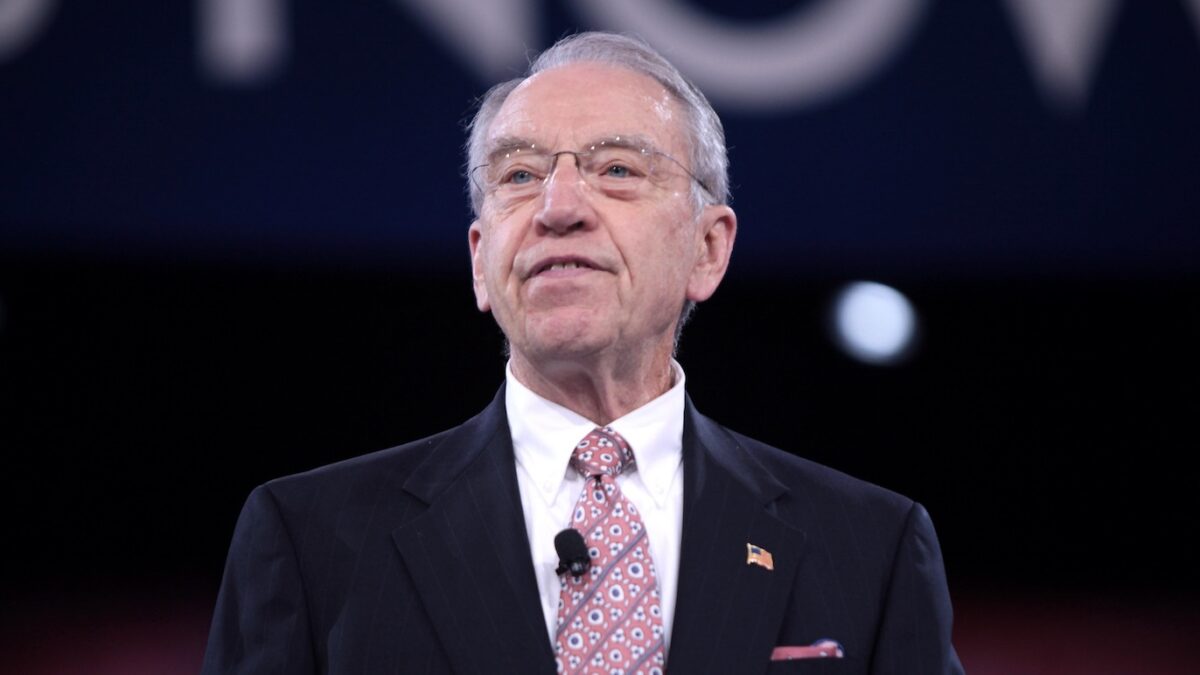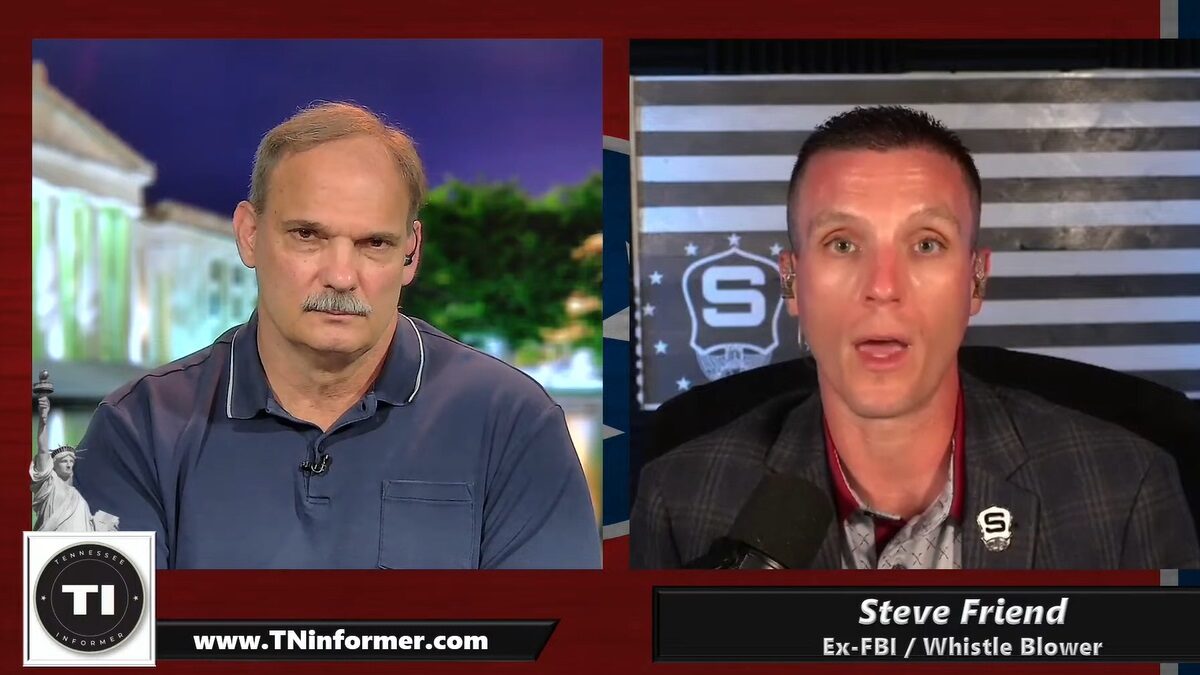
Jeff Fortenberry is not the person you’d expect to be charged with any crime, much less the crime of lying to the FBI. Painfully earnest, the Nebraska Republican congressman is a devout Roman Catholic who has a perfect pro-life voting record. He served on the powerful House Appropriations Committee, and has developed a reputation for activism on behalf of persecuted religious minorities in Iraq. It was that last focus that ended up getting him in the crosshairs of the Department of Justice.
Not even the FBI is accusing Fortenberry of knowingly accepting illegal contributions from a Nigerian billionaire who shared his concern about religious persecution in the Middle East, but those illegal contributions were where things started.
In 2016, a group of Lebanese Americans held a series of events in Los Angeles for Fortenberry, including a fundraiser. At one event, he was inducted into the Order of St. Gregory, which is a knighthood established by Pope Gregory XVI in 1831, for his service to persecuted Christians in the Middle East. Unbeknownst to the congressman, some attendees had been given money through a conduit to give him.
In 2018, the FBI ordered an informant to briefly call Fortenberry to tell him the contributions were probably illegal. A year later, two men claiming to be FBI agents knocked on his door in Nebraska and asked to speak to him. Fortenberry and his wife Celeste invited them into the house, although, according to an email they sent supporters, they were so suspicious about the men’s changing story about the nature of their visit that they asked local police to come over as well.
Referencing the obscene signs, nasty political messages, and emailed threats of violence that Fortenberry had received, Celeste said, “I had no way of knowing if these men were who they said they were.”
Still, assured that he was helping the FBI with a legitimate investigation, Fortenberry spoke to them and didn’t think to have an attorney present. The men were in fact FBI agents, and Fortenberry told them he was unaware of the illegal contributions and that they had been publicly disclosed.
Something didn’t set right with Fortenberry, according to the email sent supporters, so the congressman called his friend Trey Gowdy, a former prosecutor and former U.S. congressman from South Carolina, for advice and legal representation. After getting assurance from the U.S. attorney on the case that Fortenberry was not a target of the investigation, Gowdy encouraged him to go back to the FBI and speak to them again.
According to new filings, Assistant U.S. Attorney Mack Jenkins told Gowdy that Congressman Fortenberry was not a target of the investigation, but merely a subject of it, and “trending toward” being just a witness in the investigation.
But when Fortenberry and Gowdy went to speak to the FBI, the questioning turned hostile. Gowdy asked Jenkins “whether the interview was, as it had begun to sound, a set-up for a ‘bullshit 1001,'” referring to the section of U.S. code that criminalizes false statements. “Jenkins assured Mr. Gowdy that it was not a setup for a ‘bullshit 1001’ charge. Again, relying on AUSA Jenkins’ assurance, Congressman Fortenberry continued with his interview,” according to recently filed documents in the case.
Nearly two full years later, following a change in presidential administrations, Jenkins charged Fortenberry with, it turned out, Section 1001 violations for allegedly lying in both of his conversations with the FBI. Fortenberry has pleaded not guilty.
“Prosecutors ordered an informant to give Rep. Fortenberry information he didn’t know then waited nearly a year to send FBI agents to surprise him at home to ask about it. Despite Rep. Fortenberry’s efforts to cooperate, when he didn’t recall details the government’s informant had been directed to describe to him nearly a year earlier prosecutors waited until the Biden Administration was in power and then brought multiple charges that had nothing to do with their campaign finance investigation,” said Fortenberry spokesman Chad Kolton. “This set up of a highly effective and well-respected member of Congress is another alarming example of a Justice Department and FBI that are out of control and destroying the lives and reputations of far too many Americans.”
Fortenberry’s legal team is fighting the indictment on multiple levels, from where the case is being tried, to whether it is overly and improperly charged. There’s also the issue that the federal prosecutor trying the case is a witness to the alleged crime, and would likely be asked to testify.
Fortenberry’s legal team has filed a motion to compel the federal government to turn over relevant information to the case, as required by law.
The indictment was levied even as the FBI and Department of Justice are facing the loss of trust of many Americans because of a string of questionable and highly political decisions. The government agencies participated eagerly in a hoax that perpetuated a lie that Donald Trump stole the 2016 election by colluding with Russia, a conspiracy theory that arose out of a secret Hillary Clinton campaign operation. That investigation ended with no findings of Russia collusion by President Trump or any other American, but in the unrelated indictments of many Americans who had helped President Trump’s campaign for president.
The FBI and DOJ were found to have lied to the secret spy court in order to gain warrants to spy on American citizens. Numerous FBI and DOJ officials leaked information to the media, lied about leaking to the media, and otherwise engaged in scandalous behavior as part of their effort to fight the Trump campaign and presidency.
The agencies exhibited the anti-Republican animus shortly after working to allow Hillary Clinton and her staff to escape accountability for mishandling classified information during her time as secretary of state.
All this was just years after the FBI and DOJ were found to have hidden vital evidence from Sen. Ted Stevens, a Republican from Alaska, that would have helped him fight false statement charges. A special prosecutor lambasted the DOJ and FBI for how it handled its case against Stevens. Stevens lost his Senate seat as the case was being handled. He died in a plane crash two years later.
“The extent of the corruption is shocking,” Stevens’ attorney Brendan Sullivan said at the time. “It’s the worst misconduct we’ve seen in a generation by prosecutors at the Department of Justice.”
No major reforms have taken place at the Department of Justice or FBI even as its politicized bungling of prosecutions and investigations has made major news.









